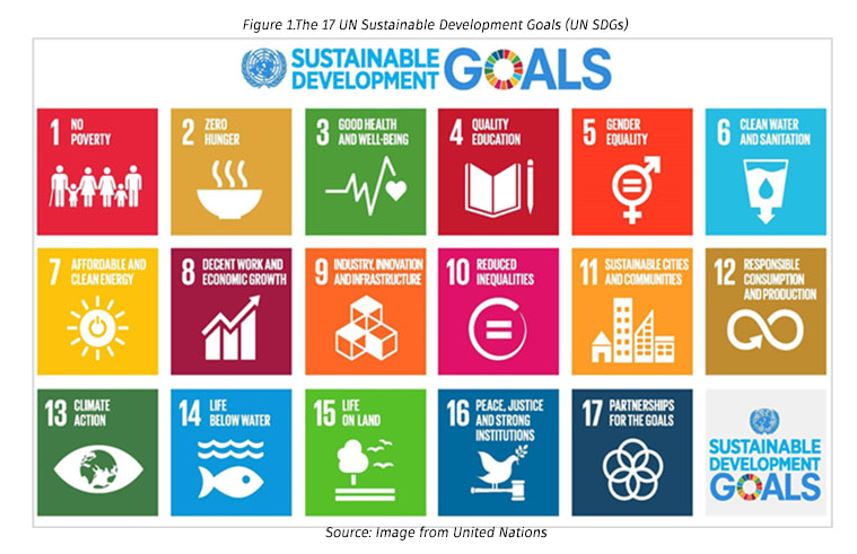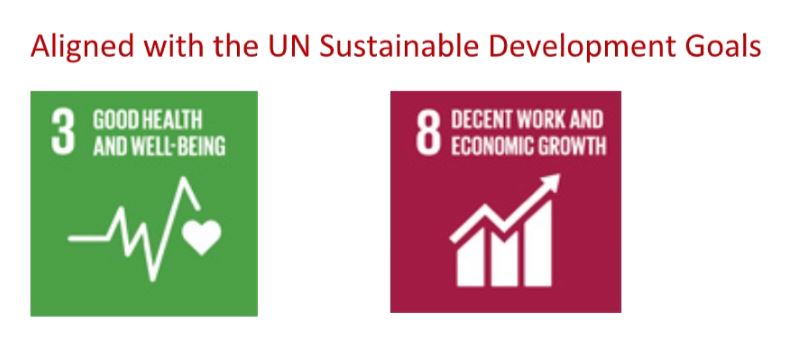The Sustainable Development Goals and Workplace Health and Safety
Sponsored Article by UON
The concept of “Sustainable Development” was introduced as early as in the 1970s. Since then, governments, civil societies, and businesses have been trying to redirect the world’s development pathways towards a more environmental-friendly, socially, and economically viable direction.
In 2015, Global leaders and policymakers devised a path for a new universal, transformative and integrated sustainable agenda called the United Nations Sustainable Development Goals (UN SDGs).

The key transformation for adopting the SDGs addresses the private sector’s roles and responsibilities in solving global issues. According to the UN SDGs Target 12.6, “Encouraging companies, especially large and transnational companies, to adopt sustainable practices and to integrate sustainability information into the reporting cycle.”
Workplace Safety and Health at the heart of SDGs and Economic Growth
Traditionally, we would think sustainability only talks about environmental issues, such as global warming and sea-level rise. However, it is not true. Human rights, labour market, worker’s benefits, workplace safety, and health are crucial to sustainable development, especially for private organisations. However, worker’ health and safety play a key role in an organisations’ economic performance. Based on ILO estimates, 2.3 million workers die from work-related injuries and diseases every year. An additional 160 million workers suffer from non-fatal work-related diseases and 313 million from non-fatal injuries per year. The economic costs to companies and economies are significant.
With the impact of the COVID-19 pandemic, employment practices and the nature of work will continue to be felt for generations. Improving workplace safety and health culture must become a global priority in the pursuit of building a sustainable workforce in alignment with the UN SDGs. Work-related health problems result in a loss between 4% to 6% of gross domestic product (GDP) for most countries. Obviously, poor workplace health and safety management can negatively impact sustainable economic growth. Investment in Occupational Health and Safety can help the organisation gain long-term economic benefits that would outweigh the initial cost.
Research conducted in 2021 based on a review of the top 100 SGX-listed (Singapore Stock Exchange) companies’ Sustainability Report issued in the Financial Year 2020 showed the following: SDG 8 (Decent work and Economic Growth) is the most reported goal reported by organisations in line with their business strategy; SDG 3 (Good Health and Well-being) is ranked as the third reported goal, right after Climate Action (SDG 13).
In SDG 8, target 8.8 emphasises the need to protect labour rights and promote safe and secure working environments for all workers, including migrant workers, in particular women migrants, and those in precarious employment. SDG 3 is to ensure healthy lives and promote well-being for all at all ages. In target 3.9, it highlights that by 2030, substantially reduce the number of deaths and illnesses from hazardous chemicals and air, water and soil pollution and contamination.

To achieve the global goals, companies shall integrate the UN SGDs in line with their key business value and core objectives. There are demonstrable benefits of an improved workplace health and safety climate for workers, communities and families. The organisation itself is the key beneficial party from the safe and healthy working condition, because people are more willing to work for an organisation who is “do well, do good”. A healthier and safer organisation will sustain long-term economic growth and stay competitive in the market with a good brand value.
With only 8 years left to 2030, creating a healthier and safer workplace and achieving UN SGDs should be a goal for all employers. It also requires all levels of an organisation with a proactive, participatory approach to empower workers to contribute to building a sustainable workforce.
About the Authors:

Ms Nancy Shen has more than 10 years of QHSE management experience in the shipping industry. She recently graduated from the National University of Singapore M.Sc. in Environmental Management. She has a Bachelor’s degree in Environmental, Occupational Health and Safety (BEnvOHS) with distinction from the University of Newcastle (Australia). Additionally, she is the chairperson of the BEnvOHS alumni, and the founder of ESG & Biz Solutions focusing on ESG-sustainability projects.

Dr Charles CC Lee is the Program Convenor and Senior Lecturer at Newcastle Australia Institute of Higher Education, a wholly owned entity of the University of Newcastle (Australia). He is in-charge of the BEnvOHS undergraduate program that has produced alumni working in senior EHS positions in local and regional industries.
